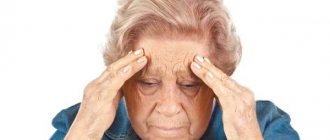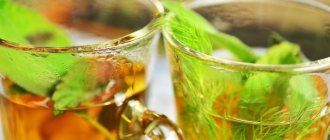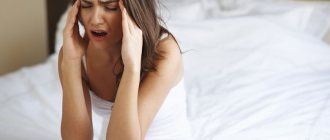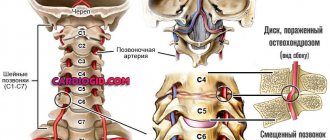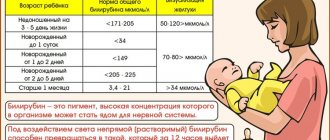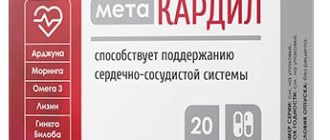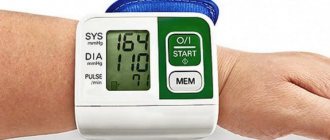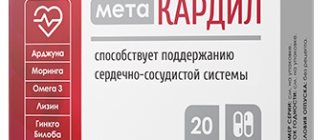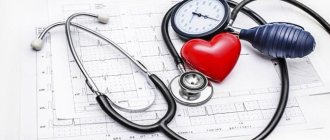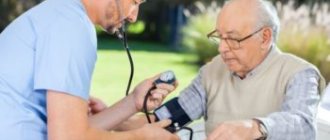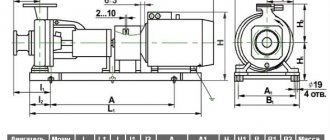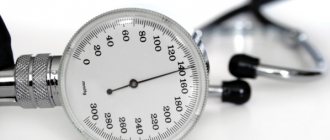What is low blood pressure
Blood pressure is not higher than 120/80 mm Hg. Art. is considered normal, but less than 90/60 mm Hg. Art. – reduced.
But these are average values, since each of us has our own optimal (working) blood pressure indicators, and it becomes low if it decreases by 20% compared to the individual norm.
With a significant drop in pressure, blood does not flow in the required quantity to all parts of the body. As a result, cells are insufficiently supplied with oxygen and nutrients. Organs that do not receive enough blood begin to function poorly. Prolonged oxygen starvation is especially undesirable for the central nervous system and brain.
Interesting: approximately 7% of the population is of the asthenic type with genetically determined low blood pressure. Asthenics are distinguished by a fragile physique, pale skin, and often have blond or brown hair. These people are characterized by moderate performance and endurance, and when blood pressure rises to 120/80 they feel unwell.
How to quickly raise blood pressure at home for an adult
conclusions
Low blood pressure can accompany a person from a young age, or may appear later as one of the symptoms of internal problems. In any case, an elderly person should not let a situation with low blood pressure take its course: at this age, such an attitude is fraught with problems.
If you adhere to a healthy lifestyle and special advice for hypotensive patients, there will be no health risks. Advice for hypotensive patients will be beneficial not only for low blood pressure, but also for the health of an elderly person in general.
What is hypotension
A condition in which the pressure is below 90/60 units is called hypotension. If it does not impair the quality of life, then most likely it is a congenital feature. However, in most hypotension is combined with unpleasant symptoms:
- one feels apathy, weakness and fatigue even after a deep, long sleep;
- concentration decreases;
- headache (usually pulsating in the temporal region);
- nausea sets in;
- it gets dark in the eyes, you feel dizzy;
- chills, sweats, especially sweaty palms and feet;
- thermoregulation is disrupted - the temperature drops to 35.5 - 36 oC;
- sometimes there is shortness of breath on exertion or a feeling of incomplete inspiration.
A complex of such phenomena, caused by poor blood supply to tissues, makes it difficult to concentrate, do work, and even just move around. Hypotension in elderly people suffering from atherosclerosis can provoke ischemic stroke and accelerate the development of angina pectoris.
Important! If, with a sharp drop in pressure, there is rapid shallow breathing, a rapid weak pulse, pallor, cold clammy skin, and confusion, you should call emergency help. The listed symptoms indicate acute hypotension, characteristic of a state of shock (collapse), often leading to cerebral hypoxia and death.
Causes of low blood pressure
Blood pressure decreases with a lack of body weight, anemia (lack of hemoglobin in the blood), unfavorable working conditions, moving to another climate zone or high mountain region, or a change in weather or season. A sharp drop in blood pressure combined with malaise can be caused by:
- acute heart failure;
- concussion, head injury;
- exacerbation of a peptic ulcer or an attack of pancreatitis
- intoxication;
- overdose of cardiac drugs (Corvalol, motherwort tincture, valocardine);
- taking antispasmodics and anesthetics, large doses of antibiotics.
Pressure drops with any blood loss - due to injury, severe nosebleeds or hemorrhoids. In completely healthy people, blood pressure values sharply decrease after procedures that dilate blood vessels - hot baths, steam baths, saunas, wraps, swimming in thermal springs. In childhood and adolescence, low blood pressure is associated with disorders of the autonomic nervous system due to accelerated growth.
Persistent hypotension can be caused by various diseases:
- chronic heart failure - when the heart becomes inflamed as a result of endo- or myocarditis (occurs after tonsillitis, flu), it pumps blood worse;
- cardiac arrhythmias and blockades caused by disruptions in the nervous regulation of the heart;
- pre-infarction condition;
- chronic adrenal insufficiency;
- diabetes;
- hypothyroidism;
- renal failure;
- neurocirculatory vascular dystonia;
- different types of depression
For chronic hypotension, accompanied by dizziness, weakness, nausea, you should consult a therapist. If you are concerned about frequent symptoms of low blood pressure, an in-depth examination is recommended: ultrasound of the heart and blood vessels, cardiography, FGDS. You can get a referral to a neurologist, cardiologist, endocrinologist, or gastroenterologist from your therapist.
Tips and tricks
Arterial hypotension is a dangerous condition that can be a harbinger of serious problems with cerebral circulation and the first sign of an impending stroke or heart attack. There are different ways to increase blood pressure, but all of them must be approved by your doctor.
Any problems with the heart and blood vessels must be addressed comprehensively, and self-medication is unacceptable here. You should also not rely too much on traditional medicine - medicinal herbs can be part of a therapeutic complex only as auxiliaries.
To normalize blood pressure, you should avoid stressful situations, get enough sleep, give up bad habits and pay attention to a proper diet.
How to increase blood pressure without drugs
At home, you can raise your blood pressure with the help of special exercises, breathing practices, foods, drinks and even plain water.
Correct body position, exercises, massage
If hypotension occurs, it is recommended to lie down immediately. If there are no conditions for this, you can improve your well-being in the following ways:
- immediately sit down and lower your head as low as possible, placing it between your knees - to ensure a sufficient flow of blood to the brain;
- sit down with your legs crossed - by reducing the amount of blood in the lower extremities, its volume and pressure in the main vessels will increase;
- standing, cross your legs at the knees and press your thighs together;
- raise your leg, place it on a bench or chair, while tilting your body forward as much as possible.
Interesting: if you have low blood pressure, you can wear elastic stockings for varicose veins. They will displace some of the blood from the lower extremities into the main vessels of the body, thereby increasing the pressure.
The following physical exercise will help improve your condition (if your age allows): you need to lie down, put your legs behind your head and stay in this position for 5-10 minutes. It is also useful to massage the neck and shoulders, actively rub the muscles of the legs and lower back.
Food and drinks
The pressure in the circulatory system depends on various factors. To raise blood pressure in an adult , you need to increase the tone of the vascular walls, increase the volume of fluid in the body, speed up the heartbeat, and increase the level of glucose in the blood. The following foods and drinks will help you urgently achieve these goals:
- ordinary clean, mineral or slightly salted water - you need to drink 1-2 glasses;
- natural coffee with a slice of dark chocolate;
- strong, freshly brewed black or green tea;
- cocoa with sugar;
- a glass of hot hibiscus tea;
- pomegranate juice;
- a piece of salted fish, cheese or lard, a pickled cucumber, a piece of generously salted rye bread or simply dissolving salt under the tongue - a common kitchen seasoning containing sodium retains fluid in the body and increases blood volume;
- slice of bread with honey and cinnamon.
Important! Caffeine quickly tones blood vessels and causes the heart muscle to contract more often. But it increases blood pressure if a person rarely drinks coffee. But for coffee lovers, the invigorating drink has the opposite effect, dilating blood vessels. In this case, it is better to make a decoction of rose hips, strawberry leaves or black currants.
Breathing exercises
Hatha Yoga has a section called pranayama, which describes the control of vital energy using specific types of breathing. One of two simple exercises from the practice of pranayama will help increase blood flow and increase pressure in the vessels:
- "Bhastrika". Forced inhalations and exhalations are performed through the nose. After 10 repetitions, tinnitus usually appears, darkening of the eyes and slight dizziness are possible. These are signs of activation of the nervous system and increased oxygen supply. It is advisable to perform 3 sets of 20 inhalations and exhalations.
- "Kapalabhati". Alternate between normal inhalation and intense exhalation through the nose, strengthened by the abdominal muscles (they seem to “squeeze out” the remaining air). Kapalbhati is also performed in 3 steps of 20 repetitions.
As a result of any of the exercises, the tonometer readings will increase after 5 minutes. If you practice the complex daily to train the nervous system, then after a couple of months the base pressure will be adjusted upward.
what to do if you have low blood pressure
Ginseng tincture
Ginseng root has a beneficial effect on the entire body. However, it is worth remembering that this tincture must be taken under the supervision of a doctor.
Although this tincture has a large number of positive qualities, it can also have a bad effect on your body, so you need to know when not to take this tincture.
For example, people with hypertension are prohibited from taking this remedy, since ginseng itself is a tonic plant; to put it another way, by dilating blood vessels, many times more oxygen enters the blood than under normal conditions.
Signs when you need to take ginseng tincture:
- Fatigue.
- Lethargy.
- Slow response.
- Headache.
- Small appetite.
- Dizziness.
Important! Ginseng should be consumed in small quantities, as it can be hazardous to health.
The first effect of using this medicine occurs after 14 days, so do not be upset if you do not see results in the first few days.
Drug therapy for hypotension
Pharmacy medications will help quickly bring low blood pressure back to normal, before taking which you should definitely consult a doctor, take into account contraindications and possible side effects. Medicines for hypotension are divided into several groups.
Plant adaptogens
They gently stimulate the central nervous system, eliminate drowsiness and effectively increase blood pressure. Hypotonic patients are recommended to have one of the following tinctures in their home medicine cabinet:
- ginseng root;
- Eleutherococcus;
- rhodiola;
- lemongrass;
- lures;
- peony
Depending on how much the pressure has decreased, take from 15 to 30 drops of any of the tinctures. In pharmacies you can also find tablets on a natural basis - Pantocrine, Saparal, Caffeine.
Means for activating the nervous system
Medicines stimulate the central nervous system and mental activity, increase physical activity, eliminate drowsiness, and increase concentration. This group includes:
- Caffeine + sodium benzoate;
- Cordiamine;
- Akrinor;
- Etimizole;
- Symptol.
Other drugs
Blood pressure quickly increases Heptamil tablets, Niketamide, Midamine drops, Noradrenaline and Mezaton injection solutions. A popular traditional remedy is Citramon, which includes paracetamol, caffeine and acetylsalicylic acid. This medicine thins the blood and activates blood flow, as a result, the organs are better saturated with oxygen.
Schisandra tincture
In the 21st century, the benefits of this plant have long been proven, so it is grown in large quantities for the manufacture of various preparations.
Schisandra tincture is used for:
- Great fatigue.
- Depression.
- Low performance
- Feeling unwell.
- Increased anxiety.
- Hangover.
- Insomnia.
When using medications that contain lemongrass, you should know that this plant can harm you. Schisandra is a potent stimulant that should never be used for:
- acute cardiovascular diseases, tachycardia, arterial hypertension;
- mental illness;
- increased anxiety and sleep disturbances;
- high intracranial pressure.
- Also not recommended for children under 12 years of age.
Preventive measures
If you have occasional problems with blood pressure, you should not always start with taking medications. In 80% of cases, hypotension occurs due to uncontrolled use of drugs for hypertension, lack of sleep, overwork, neuroses, and lack of vitamins C, E, B12. Therefore, for prevention, it is worth establishing a daily routine, increasing physical activity, and including healthy foods and drinks in the menu.
General recommendations:
- sleep at least 9 hours at night;
- regularly ventilate the premises;
- do exercises, train with a manual expander, swim, walk at least 2 hours a day - physical exercise tones blood vessels;
- drink 1.5-2 liters of water per day (and more in hot weather);
- do not stand in one place for a long time, when standing, do warm-ups (walk, jump, squat);
- take a contrast shower;
- avoid prolonged stay in a hot bath or stuffy room;
- regularly eat vegetables and fruits, fat-containing foods;
- do not abuse alcohol.
How to eat with low blood pressure
If possible, split meals should be arranged. It is advisable to divide the daily amount of food into 6-8 times, eat in small portions. The combination of products is selected so that every breakfast, lunch, dinner and snack is balanced. For hypotension, the menu includes the following products, dishes and spices:
- Fatty fish, beef liver, brains, red meat. It is better to boil, bake, steam them in order to preserve the maximum of useful components. The liver is used to make pates or add to salads.
- Fried meat, vegetables. They increase cholesterol levels and blood pressure. You need to eat fatty foods in moderation so as not to harm your digestive system. If you have problems with the gastrointestinal tract, such dishes are undesirable.
- Carbohydrates. There are many of them in confectionery and sweet baked goods. Such food promotes vasoconstriction and increases blood pressure, but in large quantities it is harmful and is contraindicated for diabetics.
- Porridge (buckwheat, oatmeal), beans, peas, beans.
- Vegetables, fruits, berries containing a lot of flavonoids and iron. These are carrots, beets, pomegranates, raspberries, currants, dogwoods, strawberries, citrus fruits, and greens. Every day they should be eaten up to 800 g in 5-6 meals in the form of side dishes, additives to sandwiches, smoothies, compotes, fruit salads.
- Salt, onion, garlic, horseradish, cloves, cinnamon. Salt retains fluid, and spices constrict blood vessels.
Smoked meats, marinades, salted fish, and cheeses will help increase blood pressure.
Herbal infusions and decoctions
If you are prone to hypotension, take infusions of herbs and berries. 1.5 tbsp. spoons of vegetable raw materials are poured into 300 ml of boiling water, cover with a lid, leave for 4 hours and filter. Drink the prepared drink three times a day, half a glass before meals. Here are some effective formulations:
- 20 g of black currant berries and barberry fruits, 40 g of rose hips, 30 g of lungwort herb
- 30 g each of black currant leaf, chicory root, plantain leaf, nettle herb, 20 g dandelion root
- 40 g red rowan, 30 g each wheatgrass and strawberry leaves, 10 g centaury herb
In folk medicine for hypotension, a decoction of a mixture of birch leaves, nettles, strawberries, black currants, and rose hips is used. 4 tbsp. spoons of the collection are poured with a liter of hot water, brought to a boil and boiled for 2 minutes. Let it brew for an hour, filter, drink 100 ml before meals.
When using folk remedies, do not forget to check your blood pressure with a tonometer.
Sources
- A.V. Barsukov, A.M. Karimova, Yu.Sh. Khalimov, D.V. Glukhovskaya The problem of arterial hypotension in young patients in clinical practice // Bulletin of the Russian Military Medical Academy. – 2021. – No. 3 (55)
- ROBERT STIGLER. Normaler und hoher Blutdruck und kardiavaskuläre Mortalität bei verschiedenen Völkern [Electronic resource] // Springer-Verlag Berlin Heidelberg GmbH, 1964.
- Michel Burnier, Edward Pivin, Fatma Megdiche. Neue Ziele für die Behandlung von Bluthochdruck? [Electronic resource] // Swiss Medical Forum ‒ Schweizerisches Medizin-Forum, March 2021.
- PROF. LUCA RIDOLFI, DOTT.ING. ANDREA GUALA. Fluidodinamica del sistema arterioso durante l'infanzia e l'adolescenza [Electronic resource] // Emodinamica del sistema arterioso, 2021.
- Keith Sturgess. Management and treatment of hypotension and hypertension [Electronic resource] // Vet Times, 2021.
